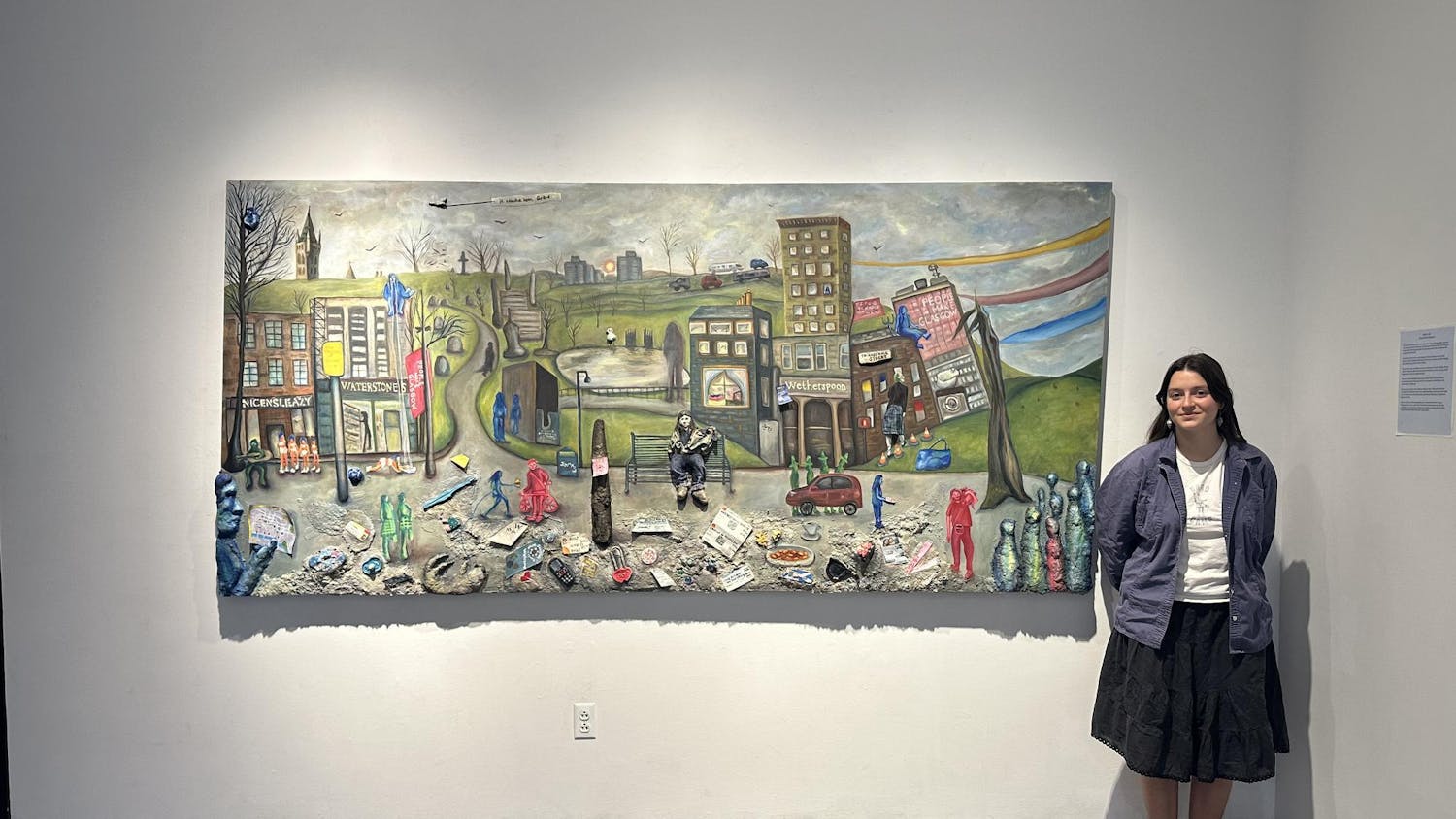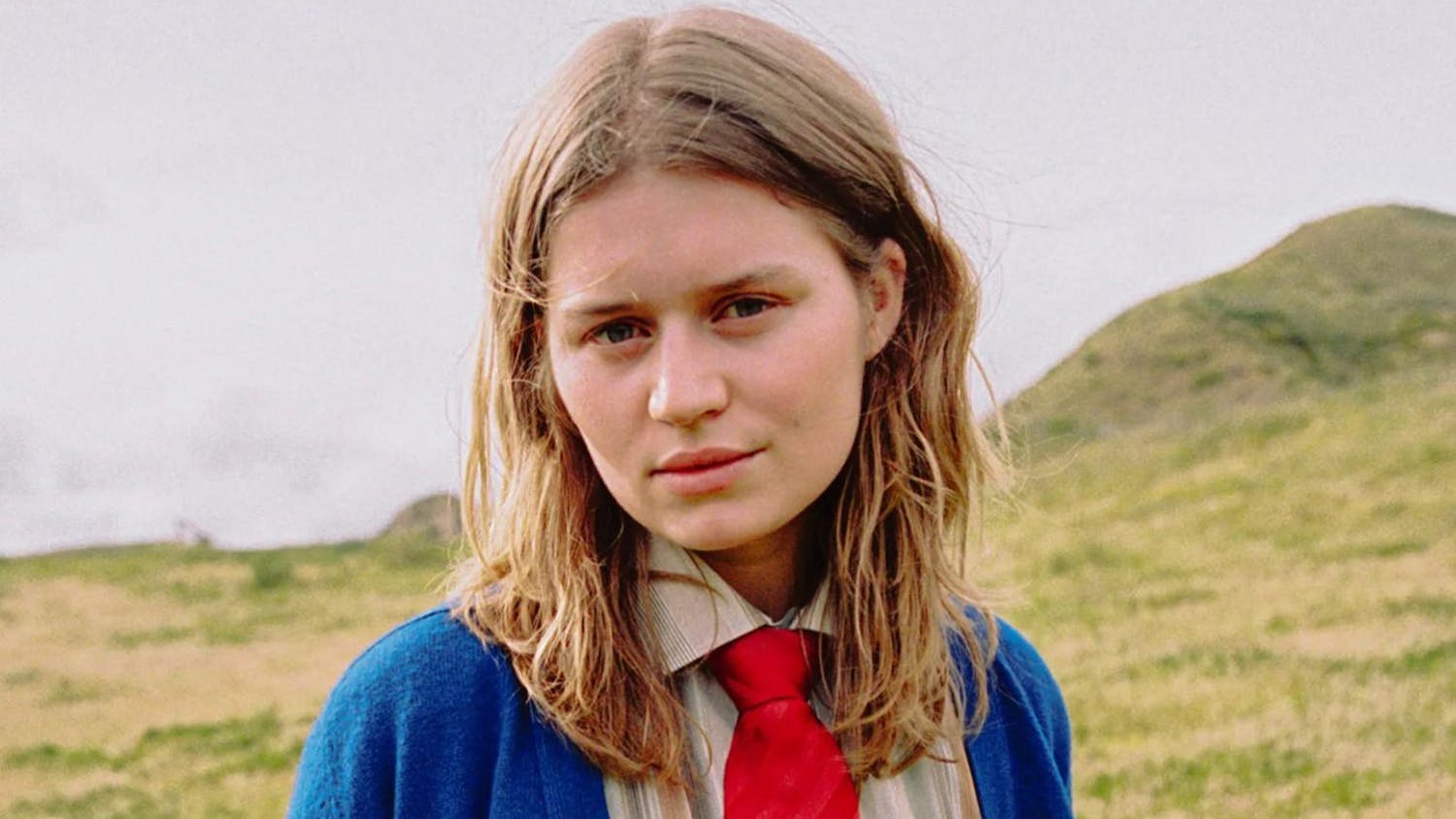For some folks on campus, cracking jokes is serious business.
Comedy groups run the gamut from sketch, improv and stand-up performers to humor blogs and print publications. Six of the groups are united under the mantle of the Brown Barrel, an umbrella organization formed last year to help facilitate collaboration and dialogue between groups.
Comedians identified overlapping membership, a shared sense of community and professional aspirations as distinguishing aspects of comedy culture at Brown.
Out of many, one
The diversity of comedy groups and their high levels of activity on campus have established a tight-knit network of writers and performers. The performance groups include three improv troupes — Starla and Sons, Improvidence and Karin and the Improvs — a sketch comedy group, Out of Bounds, and Brown Stand Up Comics. Two humor publications, the Brown Noser, a satirical newspaper, and the Brown Jug, a humor magazine, dominate the written discourse. The Jug, The Noser, Improvidence, Starla and Sons, Standup and Out of Bounds are all member organizations of the Barrel.
The first annual Brown University Comedy Conference, organized by the Barrel, will bring together groups from nine universities for performances, professional workshops and social exchange and will run April 5-7 in the Perry and Marty Granoff Center for the Creative Arts.
“The comedy community has always been pretty rich,” said Will Ruehle ’13, president of Brown Stand Up Comics and co-coordinator of the conference. “But in the last few years since the advent of the Barrel … audiences are getting bigger, there’s more crossover membership between groups, and there’s more of a social scene for … comedy performers and fans.”
The Barrel was formed primarily to address logistical concerns, Ruehle said, but it has since encouraged dialogue and collaboration between groups at large.
“I have friends from all different parts of Brown, but I end up spending a lot of time with my comedy friends because we’re always together,” said Noah Prestwich ’14, co-editor-in-chief of the Noser and member of Out of Bounds. “It’s a pretty tight group.”
“We have a good community, and we’re always trying to be more open,” said Samer Muallem ’13, editor for the Jug and a member of Brown Stand Up Comics. “There’s a real sense of supporting each other.”
The sheer number of students with professional aspirations influences the groups’ dynamics, members said. “More people are interested in performing professional, more people are interning and more of our recent graduates are working in comedy right now,” Ruehle said.
The conference next month will be a chance for Brown to prove itself, organizers said. “I think that Brown is known to have this ... well-established comedy scene, and our comedy conference in the spring is going to help solidify that,” said Jenny Gorelick ’14, a member of Improvidence, Brown and RISD’s oldest improv troupe.
The common practice of switching between writing and performing engages two different skill sets, said Drew Dickerson ’14, editor for the Jug and writer for the Noser. “I feel more pre-professional in my writing than I do in my performance because I’m building a packet that’s very permanent as opposed to my improv, which is a little more plastic,” he added.
“Because there are so many groups, there’s never a lull. There’s always something to go to,” said Evan Finkle ’14.5, founder of Brown Open Jam.
Long-form, short-form
Improv comedy in particular has gained considerable national attention in the last decade, owing to the success of comedians like Tina Fey, Amy Poehler and Bill Murray, who were trained at The Second City improv theater in Chicago. Though each of Brown’s three improv troupes practices different iterations of long-form and short-form improv methods, they all engage with comedic impulses to play with funny circumstances in spontaneous spaces. Short-form improv is a series of brief, unrelated scenes sometimes involving wordplay or games, while long-form tends to be longer and involves more complex characters and narratives.
“It’s scene work and building a sustainable world,” said Tess Plant-Thomas ’13, a member of Starla and Sons, which performs long-form improv. “There are six members, and we all work together to create a cohesive environment.”
“Our theory is that anyone can learn improv and learn to be good at it — anyone who’s passionate about it,” said Sarah Lewin ’13, co-head of Karin and the Improvs, a long-form group that does not hold auditions for new members. “If you were to come to our rehearsals, I don’t think you would find the other groups more serious.”
“We’ve always been a short-form and a long-form group, but I think the history of Starla is a bunch of members in Improvidence broke off from the group and formed Starla because they wanted to do more long-form,” Gorelick said.
A new, more informal group, Brown Open Jam, was started by Finkle as a space for relaxed collaboration between established groups and newcomers. “Once a week, we come together and we do improv,” Finkle said. “Anyone can come and play. We try to make it an open space … for all experience levels.”
Engaging female voices
Though many believe Brown has a reputation for openness to gender equality, some members of the comedy community said the issue of women’s participation in comedy still affects groups on campus. Members described a mistaken belief that women aren’t funny affecting interest in applying to or auditioning for comedy groups. In that vein, The RIB, an all-female comedy blog, seeks to create a space for women to write comedy.
“Even though Brown is such a warm, welcoming community, we feel the pressures outside,” said Rachel Borders ’13, co-editor-in-chief and co-founder of The RIB and a BlogDailyHerald contributor.
“It was really intimidating to break into these comedic groups that were already settled on campus,” said Maria Acabado ’13, the other co-founder and co-editor-in-chief of The RIB and a Herald sports staff writer. “We’d go to auditions, and there’d be a room full of boys.”
“We just found that for us The RIB would be a place where females who were funny could just get together and not have that intimidation factor, not have anything to worry about and just create a safe space where we can have an open dialogue about things that make us laugh,” Acabado said.
“I’ve been the only girl on (Starla) for two years,” Plant-Thomas said. “It’s definitely been a frustration for me, just because I don’t know why there aren’t more.”
Female authorship in comedy should be a non-issue, Acabado said. “Between Amy (Poehler), Tina (Fey), Maya Rudolph and Aubrey Plaza, people should know that girls are hilarious. If you think it’s an issue, then you aren’t familiar with any of their work,” she said.
For men involved in Brown’s comedy scene, the task of drawing more women into comedy groups is an ongoing challenge.
“We need more women in these comedy groups,” Prestwich said. “I always think that women bring something different to comedy that I really appreciate. It’s just a different approach.”
“That question sort of plagues comedy at all levels,” Dickerson said. “We want the ladies. We really want them. But we just can’t get them.”
Why comedy?
When taken seriously, there is an opportunity for drawing deeper meaning from joke-making, comedians said.
“Comedy is a social corrective, among other things,” Ruehle said. “The humor in it is recognizing that this thing that we normally accept is actually kind of absurd. So it’s sort of teaching. It shows us how we are as people. It’s like holding a mirror up to a society and saying, ‘Isn’t this silly what we do?’”
Others are in it for the entertainment.
“It’s a lot of fun to just run around and make things up as you go,” Gorelick said. “It’s scary, but it’s also extremely thrilling when you get it right.”
Clarification: A previous version of this article implied that Karin and the Improvs is the only comedy group not a member of the Brown Barrel. Of the groups listed in that paragraph of the article, Karin and the Improvs is the only non-member of the Barrel, but other comedy groups later mentioned such as the RIB and Open Jam are also not members.
ADVERTISEMENT




